
CTHEALTHSUPPS
Supplements you can trust
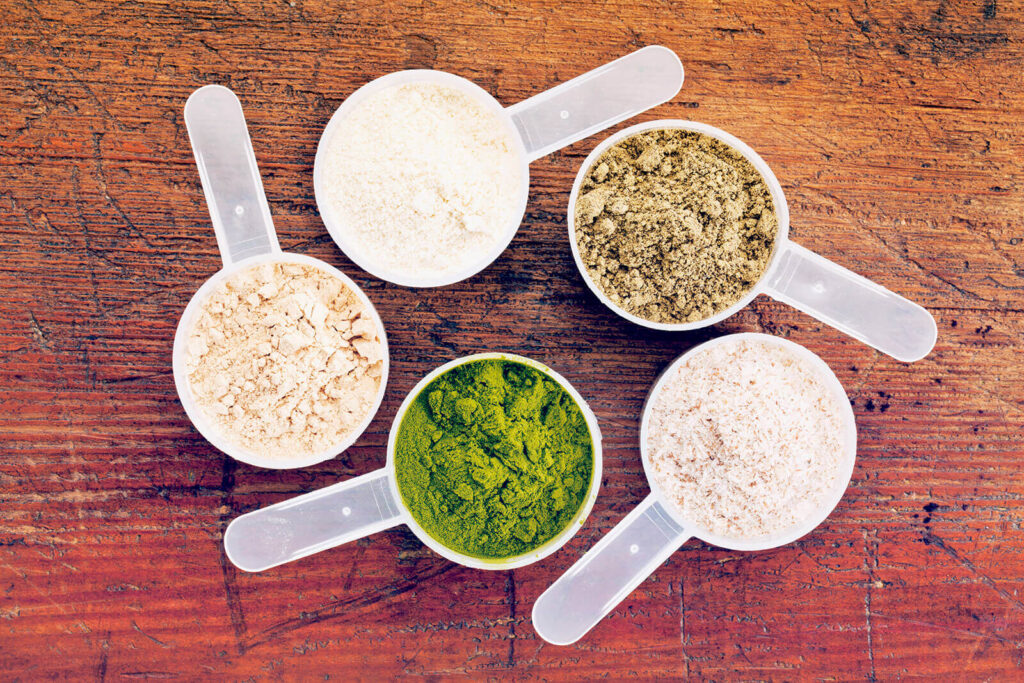
Plant based protein
Plant-based protein powders have gained popularity in recent years due to the increasing demand for plant-based and vegan dietary options. Here are some benefits of plant-based protein powder and the differences compared to non-plant-based options:
Benefits of Plant-Based Protein Powder:
- Suitable for Vegans and Vegetarians: Plant-based protein powders are derived from plant sources such as peas, hemp, rice, soy, or a blend of these. They provide a valuable protein source for individuals who follow a vegan or vegetarian lifestyle and do not consume animal products.
- High in Fiber: Many plant-based protein powders are naturally high in dietary fiber, which can help promote digestive health, regulate blood sugar levels, and support weight management. Fiber also contributes to a feeling of fullness and can help control appetite.
- Easy Digestion: Plant-based protein powders are generally easier to digest compared to some animal-based protein powders, which can be heavy on the digestive system. This makes plant-based options a suitable choice for individuals with sensitive stomachs or digestive issues.
- Lower in Saturated Fat and Cholesterol: Plant-based protein powders are typically lower in saturated fat and cholesterol compared to animal-based options. This can contribute to better heart health and a reduced risk of cardiovascular diseases.
- Rich in Essential Nutrients: Plant-based protein powders often contain a variety of essential nutrients such as vitamins, minerals, and antioxidants that are naturally present in the plant sources. These nutrients can provide additional health benefits and support overall well-being.
Differences between Plant-Based Protein Powder and Non-Plant-Based Protein Powder:
- Source: Plant-based protein powders are derived from plant sources, while non-plant-based protein powders are typically sourced from animal products like whey protein (from milk) or casein protein.
- Digestibility: Plant-based protein powders are generally easier to digest for many people, as they are often free from common allergens like lactose and dairy. Non-plant-based protein powders may be more difficult to digest for individuals with lactose intolerance or dairy allergies.
- Amino Acid Profile: Plant-based protein powders may have a slightly different amino acid profile compared to non-plant-based powders. Animal-based protein powders often provide a complete profile of essential amino acids, whereas plant-based options may lack certain amino acids or have lower amounts of some specific ones. However, consuming a varied plant-based diet can help ensure you get a complete amino acid profile.
- Environmental Impact: Plant-based protein powders are generally more sustainable and have a lower environmental impact compared to non-plant-based options. Animal agriculture, which is the source of many non-plant-based protein powders, can contribute to deforestation, greenhouse gas emissions, and water pollution.
It’s worth noting that both plant-based and non-plant-based protein powders can be beneficial depending on individual dietary preferences, lifestyle choices, and health goals. It’s important to consider your specific nutritional needs and consult with a healthcare professional or registered dietitian to determine the best option for you.
CREATINE
Creatine is a naturally occurring compound found in small amounts in certain foods, and it is also produced by the body. It plays an important role in providing energy to cells, especially during high-intensity exercise. Many athletes and bodybuilders use creatine as a dietary supplement to enhance their performance and muscle growth. Here are some of the benefits, processes, and potential side effects associated with creatine supplementation:
Benefits of Creatine:
- Increased muscle strength and power: Creatine supplementation has been shown to enhance muscle strength and power, particularly during short-duration, high-intensity activities like weightlifting and sprinting.
- Improved exercise performance: By providing an additional energy source, creatine can help delay muscle fatigue and improve performance in repetitive, high-intensity exercise bouts. This can be beneficial for athletes involved in sports such as sprinting, weightlifting, and other explosive activities.
- Increased muscle mass: Creatine supplementation can lead to an increase in muscle mass, primarily due to water retention within the muscle cells. This can result in a fuller, more pumped appearance.
- Enhanced muscle recovery: Creatine has been suggested to aid in the recovery process by reducing muscle damage and inflammation. This can potentially allow for more frequent and intense training sessions.
Process of Creatine Supplementation: Creatine is typically consumed in the form of creatine monohydrate powder, which can be mixed with water, juice, or other beverages. The most common protocol for creatine supplementation involves a loading phase, followed by a maintenance phase. During the loading phase, an individual takes a higher dose of creatine (around 20 grams per day) for 5-7 days to saturate the muscles with creatine. After the loading phase, a lower maintenance dose (around 3-5 grams per day) is taken to maintain elevated muscle creatine levels.
Potential Side Effects of Creatine:
- Water retention: Creatine supplementation can cause water retention within the muscle cells, leading to a slight increase in body weight. This weight gain is primarily due to water and not fat.
- Gastrointestinal issues: Some individuals may experience gastrointestinal discomfort, such as bloating, diarrhea, or cramping when taking creatine. Staying adequately hydrated and splitting the dosage throughout the day may help alleviate these symptoms.
- Kidney stress: There is no conclusive evidence to suggest that creatine supplementation causes kidney damage in healthy individuals. However, individuals with pre-existing kidney conditions should exercise caution and consult with a healthcare professional before using creatine.
- Interactions with certain medications: Creatine may interact with specific medications, such as nonsteroidal anti-inflammatory drugs (NSAIDs) and diuretics. If you are taking any medications, it is important to consult with a healthcare professional before starting creatine supplementation.
It’s crucial to note that individual responses to creatine can vary, and it’s always recommended to consult with a healthcare professional or a registered dietitian before starting any new dietary supplement. They can provide personalized guidance based on your specific needs and health status.
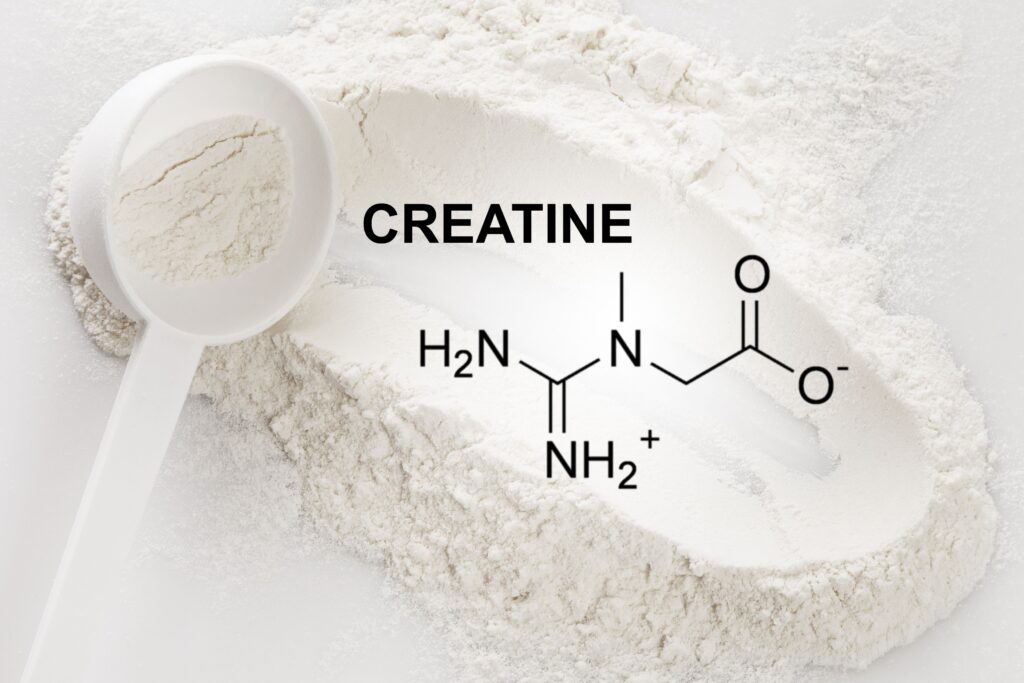
L-TYROSINE
L-Tyrosine is an amino acid that serves as a precursor to several important neurotransmitters in the brain, including dopamine, norepinephrine, and epinephrine. It plays a crucial role in the synthesis of these neurotransmitters, which are involved in various functions related to mood, cognition, and stress response. Here are some potential benefits associated with taking L-Tyrosine:
- Enhanced Cognitive Function: L-Tyrosine is believed to improve cognitive performance, particularly in situations that require mental focus, attention, and working memory. It may help increase alertness, mental clarity, and overall cognitive function.
- Improved Stress Response: L-Tyrosine is involved in the production of stress hormones like norepinephrine and epinephrine, which help the body respond to stressful situations. Supplementing with L-Tyrosine may support a healthy stress response, helping to mitigate the negative effects of stress on the body and mind.
- Enhanced Mood and Well-being: Since L-Tyrosine is a precursor to dopamine, a neurotransmitter associated with pleasure and motivation, it may contribute to a positive mood and overall sense of well-being. Some studies suggest that L-Tyrosine supplementation may help alleviate symptoms of depression and improve mood in certain individuals.
- Increased Energy and Alertness: L-Tyrosine is involved in the production of catecholamines, which are responsible for regulating energy levels and promoting wakefulness. By supporting the production of these neurotransmitters, L-Tyrosine may help increase energy, reduce fatigue, and enhance alertness.
- Improved Physical Performance: L-Tyrosine supplementation has been studied for its potential benefits in enhancing physical performance. It may help delay fatigue during prolonged exercise and improve exercise capacity by supporting the body’s response to stress and reducing the perception of effort.
- Support for Individuals with Phenylketonuria (PKU): PKU is a genetic disorder that impairs the body’s ability to break down phenylalanine, another amino acid. L-Tyrosine supplementation can help individuals with PKU meet their dietary requirements for tyrosine since their bodies are unable to convert phenylalanine into tyrosine effectively.
It’s important to note that individual responses to L-Tyrosine may vary, and it’s always advisable to consult with a healthcare professional before starting any new supplement regimen, especially if you have underlying health conditions or are taking medications.

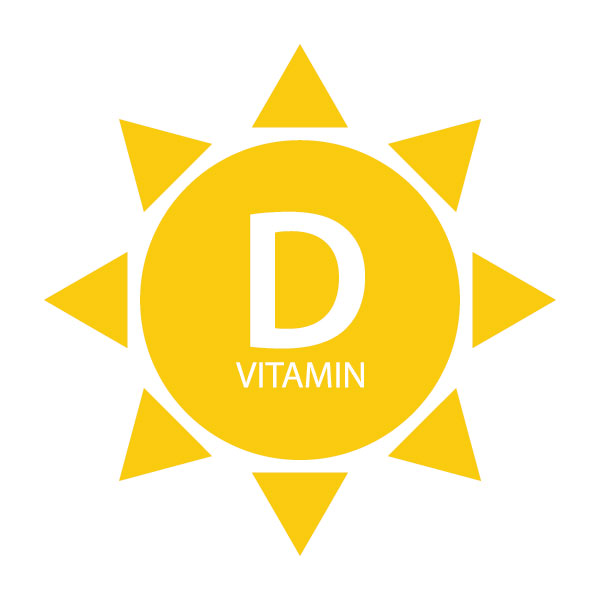
VITAMIN D
Vitamin D is a fat-soluble vitamin that plays a crucial role in maintaining overall health and well-being. It exists in two forms: vitamin D2 (ergocalciferol) and vitamin D3 (cholecalciferol). Vitamin D3 is the form synthesized by the human body when exposed to sunlight, while vitamin D2 is derived from plant sources.
Here are some benefits of taking vitamin D:
- Promotes bone health: Vitamin D aids in the absorption of calcium and phosphorus, which are essential minerals for building and maintaining strong bones. It helps prevent conditions like osteoporosis and rickets, especially in children.
- Enhances immune function: Vitamin D plays a crucial role in modulating immune responses. It helps regulate the function of immune cells, which can improve the body’s ability to fight infections and reduce the risk of autoimmune disorders.
- Supports mood and mental health: Some studies have suggested a connection between vitamin D deficiency and mental health disorders like depression and seasonal affective disorder (SAD). Adequate vitamin D levels may contribute to improved mood and overall mental well-being.
- Reduces the risk of certain diseases: Adequate vitamin D levels have been associated with a lower risk of chronic conditions such as cardiovascular disease, diabetes, certain cancers (e.g., colorectal, breast, prostate), and multiple sclerosis.
- Supports muscle function: Vitamin D plays a role in muscle function and may contribute to muscle strength and coordination. It is particularly important for individuals at risk of muscle weakness or frailty, such as older adults.
- Regulates calcium metabolism: Vitamin D helps maintain appropriate levels of calcium in the blood, which is vital for proper nerve function, muscle contraction, and overall cellular activity.
It’s important to note that while sunlight is a natural source of vitamin D, supplementation is often necessary, especially for individuals with limited sun exposure, darker skin tones, older adults, or those with certain medical conditions. If you’re considering taking vitamin D supplements, it’s best to consult with a healthcare professional to determine the appropriate dosage for your specific needs.
L-CRANITINE
L-Carnitine, also known as Levocarnitine or simply Carnitine, is an amino acid derivative that plays a vital role in energy metabolism within the body. It is naturally produced in the liver and kidneys and can also be obtained from dietary sources such as red meat and dairy products. L-Carnitine has several potential benefits, including:
- Fat metabolism: L-Carnitine helps transport fatty acids into the mitochondria of cells, where they can be converted into energy. This process is important for the body’s ability to use fat as a fuel source, making it potentially beneficial for weight management and improving exercise performance.
- Exercise performance: L-Carnitine has been studied for its potential to enhance exercise performance. It may increase the uptake of fatty acids into muscle cells, allowing for improved endurance and a delay in the onset of fatigue.
- Muscle recovery: L-Carnitine may help reduce muscle damage and speed up recovery following intense exercise. It has been suggested to reduce markers of muscle damage and muscle soreness, potentially aiding in the repair and regeneration of muscle tissue.
- Brain function: L-Carnitine has been studied for its potential cognitive benefits. It may enhance brain function, improve memory, and increase mental focus. Some research suggests it may also have a protective effect against age-related cognitive decline.
- Heart health: L-Carnitine plays a crucial role in maintaining a healthy heart. It helps transport fatty acids into cardiac cells, which are the primary source of energy for the heart. L-Carnitine supplementation may be beneficial for individuals with certain heart conditions, including angina and heart failure.
- Male fertility: L-Carnitine has been investigated for its potential role in male fertility. Some studies suggest that it may improve sperm quality, including sperm count, motility, and morphology, thus aiding in male reproductive health.
It’s important to note that while L-Carnitine has shown promise in various areas, the extent of its benefits and their clinical significance is still a topic of ongoing research. As with any supplement, it’s recommended to consult with a healthcare professional before starting L-Carnitine supplementation, especially if you have any underlying health conditions or are taking medications.
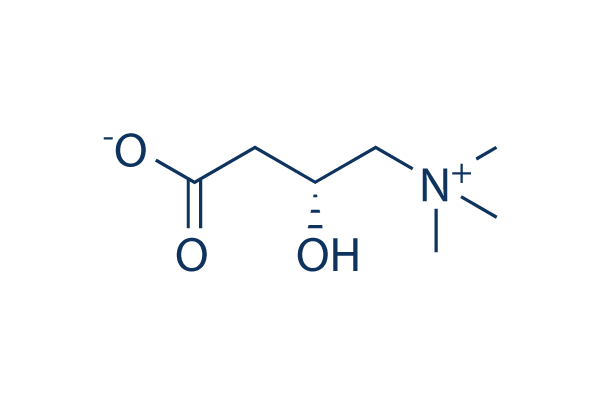
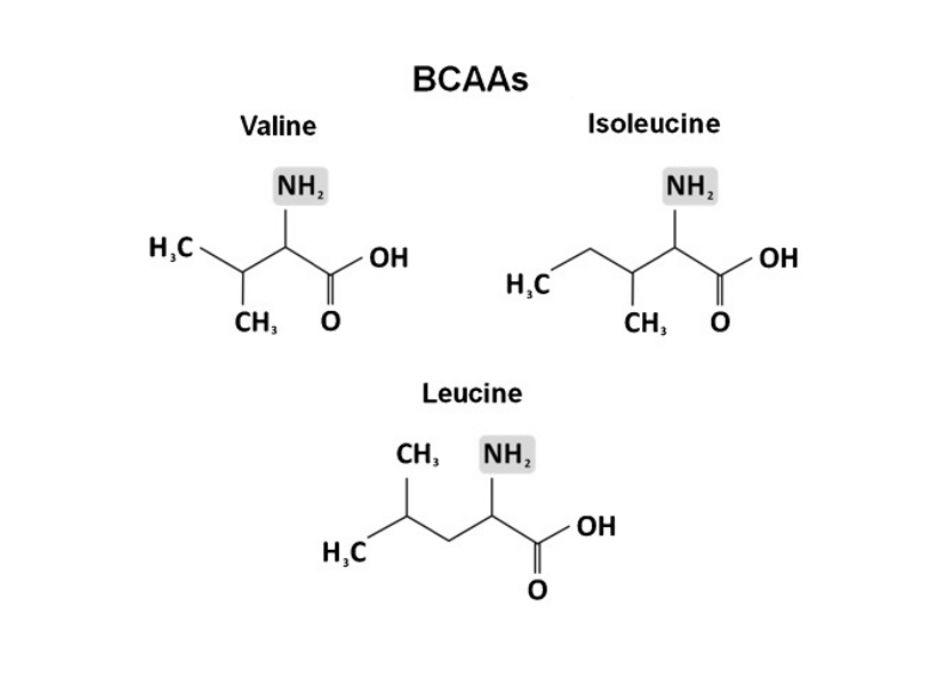
BRANCH CHAIN AMINO ACID (BCAAs)
Branch chain amino acids (BCAAs) are a group of essential amino acids that play a crucial role in protein synthesis and muscle metabolism. The three amino acids included in this group are leucine, isoleucine, and valine. Unlike other amino acids, BCAAs are metabolized directly in muscle tissue rather than in the liver, making them readily available for energy production and muscle building.
Here are some key benefits of branch chain amino acids:
- Muscle Growth and Repair: BCAAs are often consumed by athletes, bodybuilders, and fitness enthusiasts to support muscle growth and repair. Leucine, in particular, activates a pathway in muscle cells called the mammalian target of rapamycin (mTOR), which triggers muscle protein synthesis. By promoting protein synthesis and reducing protein breakdown, BCAAs can aid in the growth and maintenance of muscle mass.
- Exercise Performance: BCAAs can improve exercise performance by reducing fatigue during prolonged or intense physical activity. During exercise, tryptophan (an amino acid) is converted to serotonin in the brain, which is associated with fatigue. BCAAs compete with tryptophan for entry into the brain, limiting the production of serotonin and helping to delay fatigue, leading to increased endurance and prolonged performance.
- Muscle Soreness and Recovery: BCAAs may help reduce muscle soreness and accelerate recovery after intense exercise. They have been shown to decrease exercise-induced muscle damage and inflammation, leading to faster recovery and less muscle soreness. BCAAs also play a role in glycogen replenishment, which is the storage form of glucose used for energy during exercise.
- Energy Source during Exercise: BCAAs can be used as an energy source by muscles during prolonged exercise or when carbohydrate stores are low. When glycogen levels are depleted, BCAAs can be broken down and converted into glucose through a process called gluconeogenesis. This can help provide an additional source of energy and prevent muscle breakdown.
- Weight Loss and Appetite Control: BCAAs may have an impact on weight loss and appetite regulation. Leucine, in particular, has been shown to suppress appetite and increase feelings of fullness. By reducing food intake and promoting fat loss while preserving muscle mass, BCAAs can potentially support weight loss efforts.
It’s important to note that while BCAAs can be beneficial, their effects may vary depending on individual factors, such as diet, exercise regimen, and overall nutrition. It’s generally recommended to consume BCAAs as part of a balanced diet and in consultation with a healthcare professional or registered dietitian.
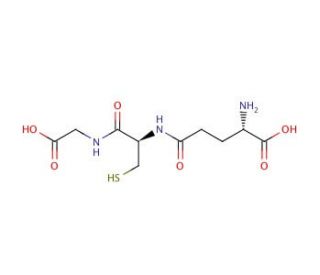
Glutathione-SR
Glutathione-SR (Sustained Release) is a specific form of glutathione, which is a tripeptide composed of three amino acids: cysteine, glutamic acid, and glycine. Glutathione is a crucial antioxidant that plays several important roles in the body. While the sustained-release formulation of glutathione offers some unique benefits, the overall advantages of glutathione remain the same. Here are some of the potential benefits of glutathione-SR:
- Antioxidant activity: Glutathione-SR acts as a potent antioxidant, helping to neutralize harmful free radicals in the body. Free radicals are unstable molecules that can cause oxidative stress and damage cells, DNA, and other structures. By scavenging these free radicals, glutathione-SR helps protect the body against oxidative damage.
- Detoxification: Glutathione-SR is involved in the detoxification process in the liver. It binds to and helps eliminate various toxins, heavy metals, and pollutants from the body. This detoxification capacity is particularly beneficial for individuals exposed to high levels of environmental toxins or those with compromised detoxification pathways.
- Immune system support: Glutathione-SR plays a vital role in supporting the immune system. It helps modulate the activity of immune cells and promotes the production of cytokines, which are important for immune regulation. Adequate levels of glutathione-SR can enhance immune function and help the body fight off infections.
- Skin health: Glutathione-SR is often associated with skin lightening or brightening effects. It is believed to inhibit the production of melanin, the pigment responsible for skin color, and may help reduce the appearance of dark spots, hyperpigmentation, and uneven skin tone. However, it’s important to note that the evidence supporting its skin lightening effects is limited.
- Anti-aging properties: As an antioxidant, glutathione-SR helps protect cells from oxidative damage, which is one of the underlying factors in the aging process. By reducing oxidative stress and supporting cellular health, glutathione-SR may contribute to overall anti-aging benefits.
It’s worth mentioning that while glutathione-SR has potential benefits, its efficacy and specific effects may vary among individuals. The dosage, formulation, and absorption of glutathione supplements can also influence their effectiveness. It’s always advisable to consult with a healthcare professional before starting any new supplement regimen to determine the appropriate dosage and ensure it aligns with your specific health needs.






About
This is an Affiliate Marketing site with the soul purpose of providing you with trust worthy information about supplements that will improve your fitness goals and overall health.